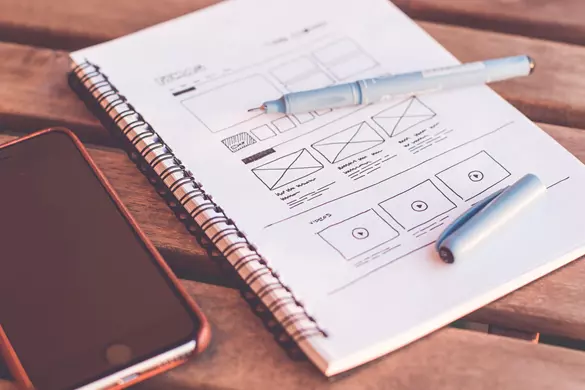With so much business conducted online, having a web presence is a must. However, most businesses don’t realise it’s not enough to simply have a website. Good web design is integral to success and can affect everything from brand image to customer experience.
Table of Contents
Why Web Design Matters
The following are some reasons why website design is so important.
Sets First Impression
First impressions are powerful, and whether or not you prioritise web design can either make a good first impression or a bad one. If your website lags and takes more than 3 seconds to load, potential customers may choose to visit a competitors’ website instead. However, if you make a good first impression by having a responsive and user-friendly website, visitors are more likely to stay on the page.
Builds Trust and Authority
Web design also helps individuals determine a website’s authority and credibility. Out-dated and non-responsive websites can reflect badly on the brand itself and have potential customers questioning the quality of their products and services.
Creates Brand Image
Elements like fonts, colours, and images help create and maintain brand image. Your website reflects your brand and what it stands for. Good web design is essential in making sure your brand image aligns with what you want to reflect. Whether it’s through consistency in colours or fonts, services like whitepeakdigital.com can help you ensure your brand image is one that you’re trying to portray.
Therefore, web design is important because it affects how potential customers perceive your brand. Good web design can create a positive brand image and lead to sales and conversions, while poor web design can result in high bounce rates and customers leaving your website to visit a competitor’s website.
Helps Differentiate You from Competitors
Website design can help set you apart from your competitors. This isn’t restricted to responsiveness and easy navigation, both of which are now requirements of web design. Website design can optimise branding and consistently use colours and fonts to make your brand stand out from the rest.
Improves User Experience
Good web design enhances usability and improves overall user experience. Things like navigation are made simpler, and information about the business or its products or services is easy to locate. Easy navigation, fast loading speed, accessibility, and responsiveness are parts of web design that can improve user experience.
Increases Sales and Conversions
Good web design allows you to drive traffic to specific promotions and calls to action and thus, increases sales and conversions. Additionally, because it reduces bounce rates and users spend more time on your website, they’ll be more likely to check out other pages, look at your products, and make purchases.
Assists SEO Strategy
Factors like loading speed can assist your SEO strategy and improve rankings. In fact, Google has announced that “core web vitals” like loading speed, first input delay, and cumulative layout shift will affect rankings and your ability to show up in the top ten search result positions. Improving these not only improves user experience but also helps with search engine optimisation.
Elements of Good Web Design
Now that you know why web design is important and how it can help your business, it’s important to know which elements of web design are most important to focus on.
Responsiveness
A responsive web design automatically makes the necessary adjustments to look good across multiple devices. Your website should be accessible no matter which device your customers use so that they remain engaged and interested in your website instead of exiting the page and going to a competitor’s website.
Loading Speed
Speed is one of the most important aspects of web design. Not only does this affect search engine optimisation, but it also affects bounce rate. If your website doesn’t load quickly, users are not going to stick around to look at your products or services and make purchases. The longer your website takes to load, the more likely visitors are to abandon it and look elsewhere.
Navigation
Your website should be simple to navigate, and users should be able to find the information they want with ease. An intuitive navigation system leaves users with no questions and makes figuring out your website straightforward.
Accessibility
Web design should make your website accessible to everyone, including those with disabilities. Not only does this improve user experience, but it helps you cater to a more diverse customer range. Accessibility solutions include optimising text-to-speech functions, including image descriptions, and more.
The importance of web design cannot be understated. A well-designed website can mean the difference between high bounce rates and visitors becoming customers. It can also help differentiate you from your competitors and provide a good user experience for those who visit your website.
Read Also: How the Walkthrough Website Design is Changing SEO


